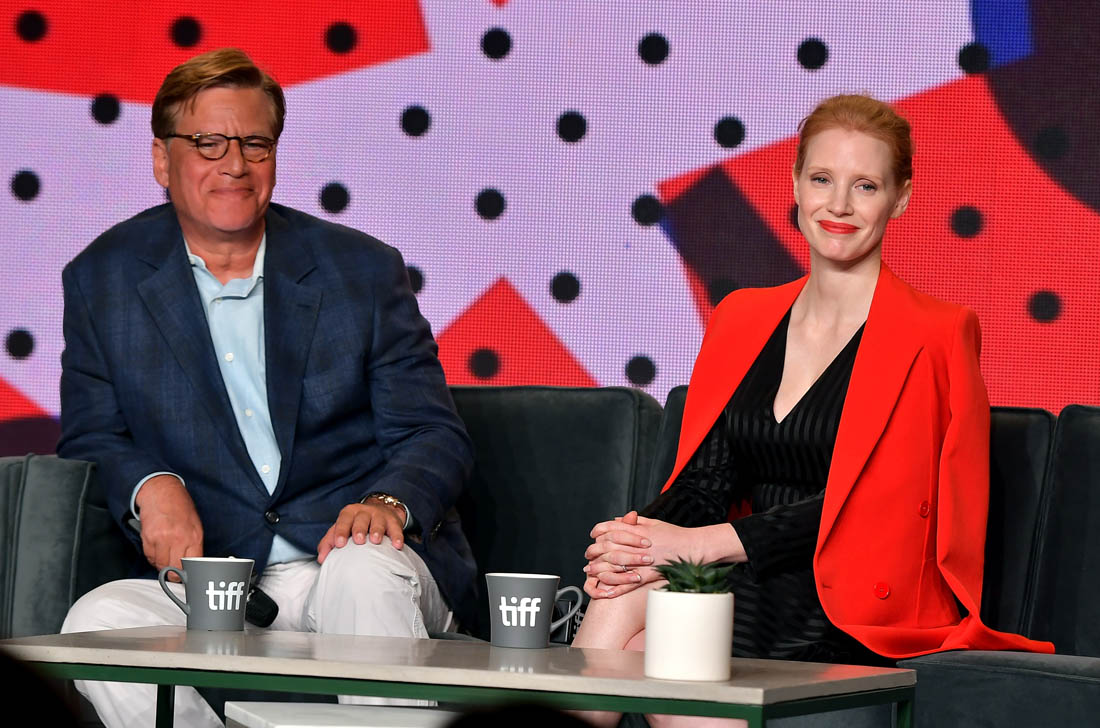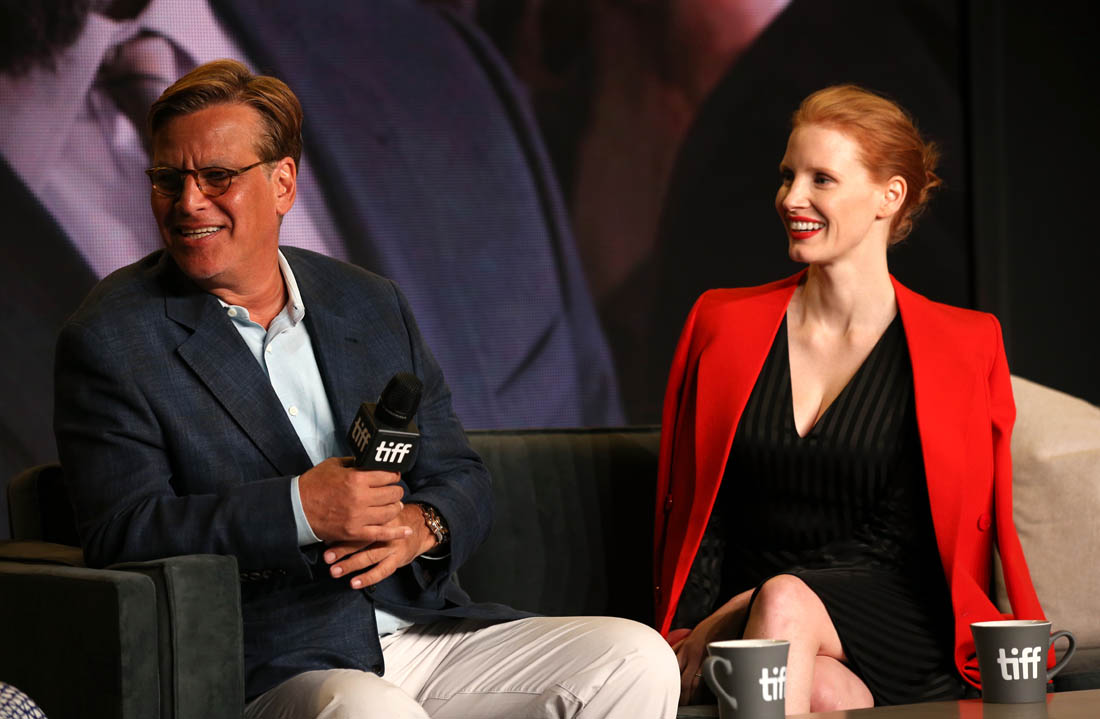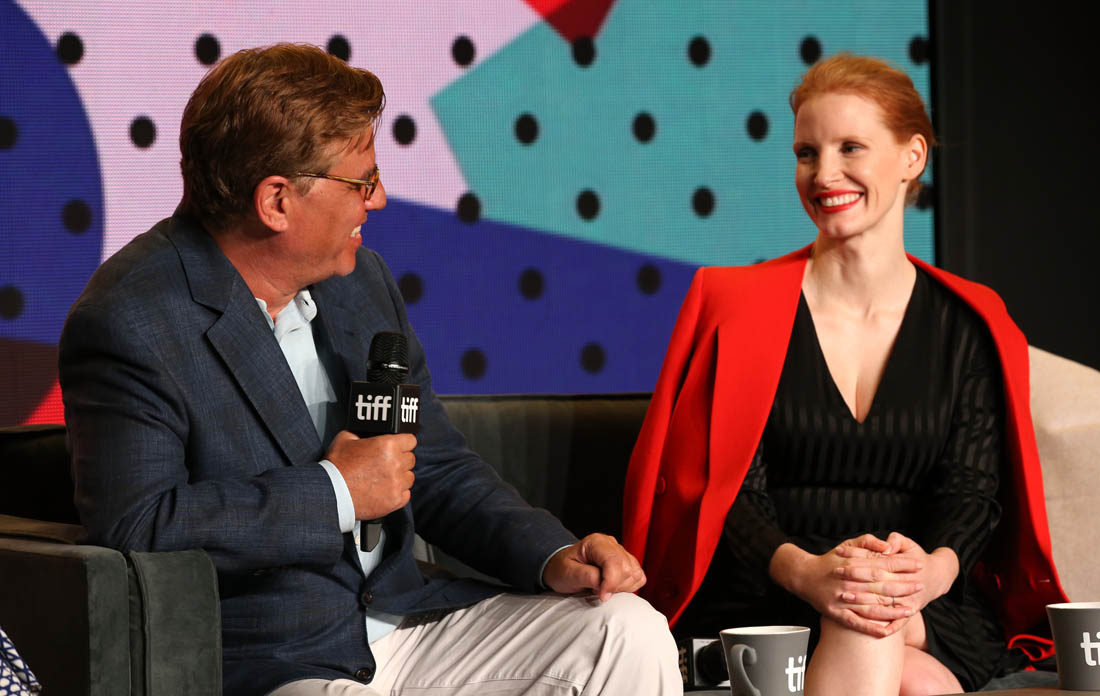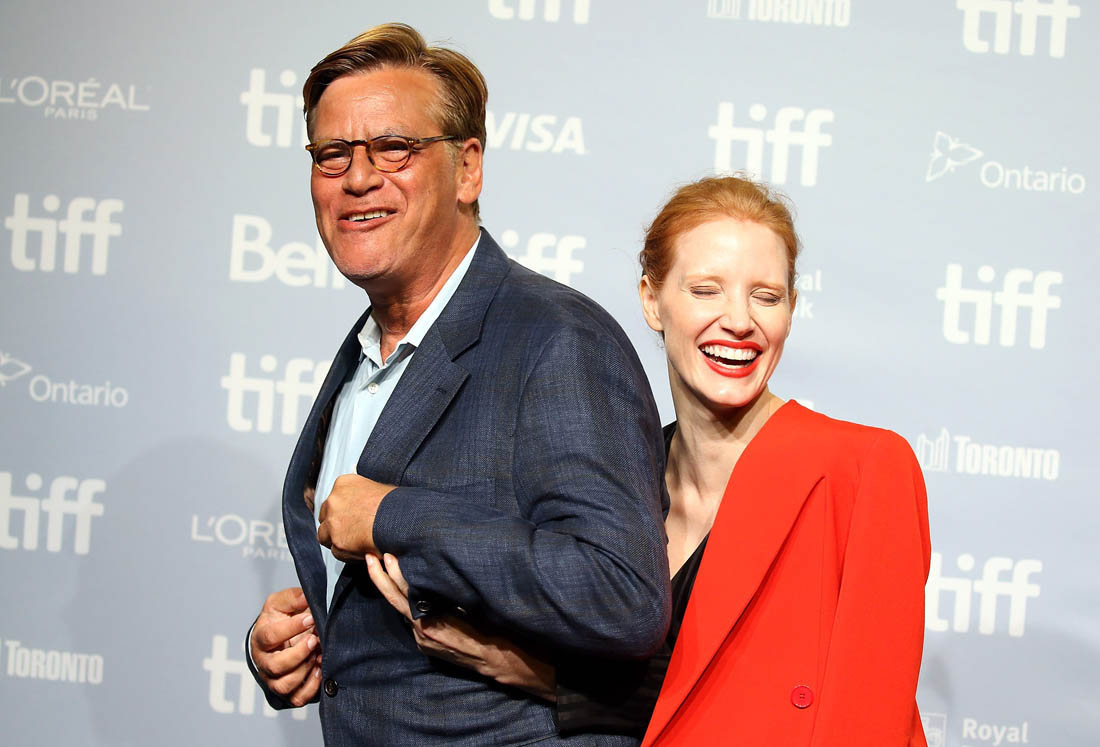TIFF Review: Molly’s Game



Molly’s Game is Aaron Sorkin’s directorial debut, but it’s Jessica Chastain’s movie from start to finish. Written by Sorkin, adapted from Molly Bloom’s memoir as the mastermind of the world’s most exclusive poker game, unsurprisingly Molly’s Game is mostly a series of flashy monologues characters spit at each other like they’re in a particularly classy rap battle. Chastain is a powerful actor who can elevate bad material if needed but when given the good stuff, she can power an entire movie just on the way she bites her consonants or lets a sentence trail off. In Molly’s Game, she has great f*ckin’ material, and as a result gives a powerhouse performance.
Power is baked into Molly’s Game from the beginning, especially the power men hold over women. Molly Bloom, a would-be Olympic skier whose career is ended after a devastating injury, has a difficult relationship with her psychologist father (Kevin Costner), and her brothers, one of whom is Olympic skiing champion Jeremy Bloom, seem completely irrelevant to her life. Surely they’re not so estranged in real life, but when Molly has to remake herself after the ending of her Olympic dream, she chooses to do it in Los Angeles, away from her family.
She ends up working for a douchebag movie producer, anonymized as “Dean Keith” (Jeremy Strong, The Big Short), who plays in an exclusive poker game at the “Cobra Lounge”, the barely-disguised Viper Room. (The movie keeps up the anonymity provided by Bloom’s book, but for the gossip-inclined, it’s not hard to figure out who’s who.) Molly teaches herself poker in order to run a good game, and in time she’s running the game so well that Dean inevitably tries to crush her. (He’s that boss who has to destroy a talented employee’s confidence in order to feel confident himself.)
For the most part, Sorkin resists stating the obvious, and the power plays between Molly and her most powerful players, from Dean to “Player X” (Michael Cera, playing what is widely believed to be Tobey Maguire), provide a nice call-and-response to the intercut scenes of a younger Molly struggling with her father, and an older Molly struggling with her reluctant lawyer, Charlie (Idris Elba). Molly’s entire life is defined by controlling these powerful men via her poker game. When Player X gets the better of her in LA, she goes to New York to begin a bigger, even more exclusive game, as if to wipe out the loss in LA, thus reasserting her power over powerful men.
(Player X probably thinks he defeated Molly, because she ended up losing everything after he sent her packing out of LA, but she’s now the subject of a very flattering, probably Oscar-bound biopic, meanwhile, he’s voicing a character in Boss Baby.)
We’re never really given a reason to root for Molly, so the stakes are pretty low—basically just hoping someone doesn’t go to prison for breaking the law—but Jessica Chastain exudes such grit and determination we buy into her whole deal. Also, Molly won’t name names once she’s indicted, even though it would mean freeing herself from the federal case in which she is ensnared. This oddly moral streak from a person who ran an underground poker game frustrates her lawyer to no end, and Chastain and Elba have some terrific verbal-sparring scenes as their characters play different agendas with her court case. They have amazing chemistry—their simple two-hander dialogue scenes outdo any of the poker stuff—and even though it’s not at all the point of the movie, there is a moment where I chanted, “Kiss! Kiss!” in my head.
Despite frequent time jumps, Molly’s Game is a pretty straightforward movie, and Sorkin directs it so. It’s not extraordinary direction, but he doesn’t embarrass himself, especially with the performances he gets from his actors. There is one on-the-nose scene that spells out Molly’s issues, just in case you missed them, and it’s only tolerable for the great acting Kevin Costner does in it. But other than that one, for-the-people-in-the-back scene, Molly’s Game is a film that survives on performance and dialogue, and it’s at its best when Molly is testing her wits against a wily player, whether it’s one of her poker regulars, her father, or her lawyer. And even though Molly loses everything, she comes out the winner, because she built something through sheer determination, and then held onto her integrity with equal fervor when it was all she had left. Molly’s Game isn’t about money or fame or prestige. It’s about power, and a woman who wields it as a shield, not a sword.



























